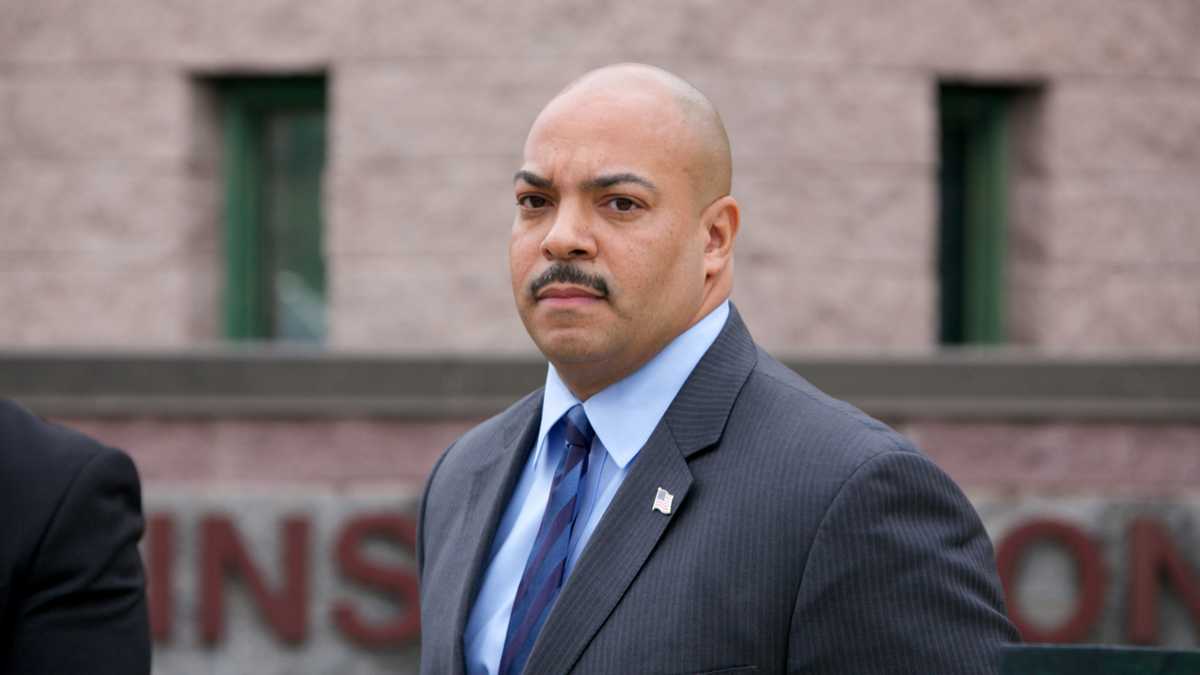Seth Williams’ downfall is a cautionary tale for prosecutors everywhere

Philadelphia District Attorney Seth Williams (Nathaniel Hamilton for NewsWorks, file)
Seth Williams, the first African American district attorney in Philadelphia, is down and soon to be out. He provides a cautionary tale for prosecutors and other politicians who lose their way, who become consumed by hubris, greed, and corruption, and turn the justice system into a racket.
He came on the scene as a breath of fresh air, a bold reformer who promised to move away from mass incarceration, a criminal justice system that ensnares young men of color, and the death penalty. He came into office under the slogan “A New Day, A New DA” Nearly seven years later, his descent began with allegations that he was running a “pay to play” corruption scheme and had been making cases go away in exchange for gifts totalling $160,000.
He brought down other black elected officials for pocket change, for offenses far less egregious than his.
Ultimately, Williams fell from grace when the feds came knocking on his door and indicted him on 23 counts of bribery, extortion, and mail fraud, even stealing from his own mother. This, after he had thrown the black community under the bus, betrayed the trust of progressives, community activists, and others in the Democratic base who thought he was a criminal justice reformer; and preyed upon them by seeking more punishment and harsh sentences.
Although Williams is the latest and most conspicuous example of bad prosecutors, he is but one example of a systemic crisis. Most district attorneys throughout the country are doing their job and avoiding federal indictment. Then again, the whole system is rigged for failure. Part of the problem is that district attorneys are political animals who care primarily about winning elections, sometimes more than justice itself. And as an elected official, if you put your career before the investigation of crimes, then you are liable to cut corners, abuse your office, and even break the law.
Going after five elected officials and a traffic court judge turned Williams’ supporters against him, resulting in a scandal that led to the conviction of former Pennsylvania Attorney General Kathleen Kane. His decision to challenge Gov. Wolf’s death penalty moratorium, and seek the death penalty for black men with strong innocence claims — including those whose convictions were overturned by federal judges — angered his base.
The possible rationale for his actions is confounding. Perhaps he was seeking higher, statewide office, such as U.S. senator or governor, and believed these conspicuous moves against black defendants would endear him to the “Alabama” section of the state between Philly and Pittsburgh. Or maybe he simply drank too much of his own Kool-Aid, which then immediately went to his head. He became the cigar-toting machine boss portrayed in the now infamous oil painting portrait of Williams.
Certainly more than a few Philadelphians found it ironic that Lynne Abraham, Williams’ predecessor, sued to remove the indicted and voluntarily disbarred top prosecutor. Once praised, or cursed, as “America’s deadliest DA,” Abraham developed a reputation for a most vigorous use of the death penalty, which helped place Pennsylvania’s death row population among the five largest in America. With 108 capital sentences under her belt — with the condemned disproportionately black — she is one of five prosecutors responsible for 440 prisoners on death row, out of over 2,900 awaiting executions nationwide, according to a Harvard report released last year.
For years, and even today, prosecutors have met public demands for a law-and-order and tough-on-crime approach to the justice system. Too often, under this narrative, crime has a black or brown face. Republicans and Democrats alike have benefited personally and politically on the backs of African-American, Latino,and poor folks caught up in the system, most of them indigent and unable to afford legal representation, most forced to take a plea, and some of them innocent. The war on drugs and the prison boom have made countless careers.
According to the National Registry of Exonerations, of over 2,000 wrongful convictions in its database, official misconduct was a contributing factor in over half of these cases, the second leading cause after perjury and false confessions. In around two-thirds of wrongful murder convictions, official misconduct played a role. Some DAs strike African-Americans from the jury, secure convictions through appeals to racial animus, coerce witnesses, and plant, hide, and tamper with evidence. This happens far more often than many would think.
Williams, who did not have to take this path, had a number of role models to follow. Although there are merely a handful of black elected prosecutors in the U.S., the late-Brooklyn DA Ken Thompson and Orange County, former Dallas DA Craig Watkins and Florida State Attorney Aramis Ayala — each the first black to hold that position in their respective counties — have sought racial justice and criminal justice reforms as being in the best interests of their communities. Until more DAs decide to place fewer people behind bars and on death row — and do what is best for society rather than the tally on their wall — we will continue to see more tragic figures such as Seth Williams.
WHYY is your source for fact-based, in-depth journalism and information. As a nonprofit organization, we rely on financial support from readers like you. Please give today.

